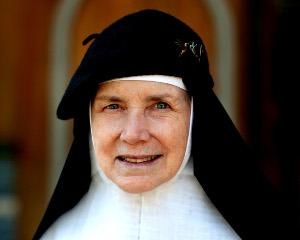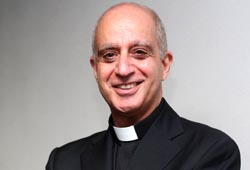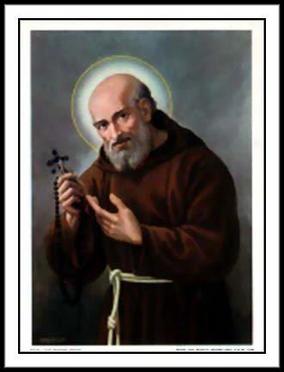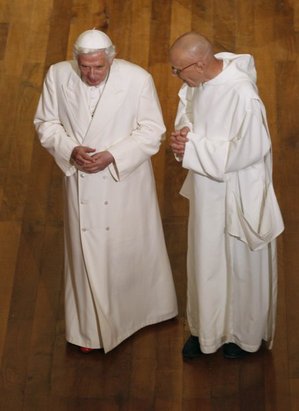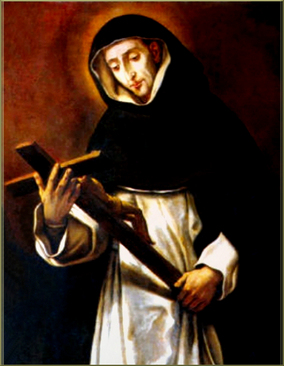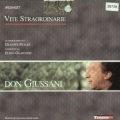 On October 8, 2011, a film series co-sponsored by the Siena Forum for Faith and Culture and Crossroads Cultural Center on extraordinary Christian lives concluded with the showing of the documentary conducted by Elena Guarnieri of “Vita Straordinarie: Don Luigi Giussani” (Extraordinary Lives: Fr. Luigi Giussani”) on the life and work of Monsignor Luigi Giussani, called: the priest wounded by beauty by Pope Benedict when he offered the Sacrifice of the Mass for the repose of Giussani’s soul on 25 February 2005.
On October 8, 2011, a film series co-sponsored by the Siena Forum for Faith and Culture and Crossroads Cultural Center on extraordinary Christian lives concluded with the showing of the documentary conducted by Elena Guarnieri of “Vita Straordinarie: Don Luigi Giussani” (Extraordinary Lives: Fr. Luigi Giussani”) on the life and work of Monsignor Luigi Giussani, called: the priest wounded by beauty by Pope Benedict when he offered the Sacrifice of the Mass for the repose of Giussani’s soul on 25 February 2005.
Dolores Hart steps out of the Abbey to help her sisters
Continue reading Dolores Hart steps out of the Abbey to help her sisters
Saint Margaret Mary Alacoque

I give myself and consecrate to the Sacred Heart of our Lord Jesus Christ, my person and my life, my actions, pains, and sufferings, so that I may be unwilling to make use of any part of my being other than to honor, love and glorify the Sacred Heart. This is my unchanging purpose, namely, to be all His, and to do all things for the love of Him, at the same time renouncing with all my heart whatever is displeasing to Him. I therefore take You, O Sacred heart, to be the only object of my love, the guardian of my life, my assurance of salvation, the remedy of my weakness and inconstancy, the atonement for all the faults of my life and my sure refuge at the hour of death.
Be then, O Heart of goodness, my justification before God the Father, and turn away from me the strokes of his righteous anger. O Heart of love, I put all my confidence in You, for I fear everything from my own wickedness and frailty, but I hope for all things from Your goodness and bounty.
Remove from me all that can displease You or resist Your holy will; let your pure love imprint Your image so deeply upon my heart, that I shall never be able to forget You or to be separated from You.
Saint Teresa of Avila
Today, the Church puts on our lips at the entrance antiphon a wonderful psalm verse that captures Saint Teresa of Avila to a “T”: As the deer
longs for streams of water, so my soul longs for you, O God. My soul thirsts
for God, the living God. When can I enter and see the face of God? (Psalm 42: 2-3).
Teresa of Avila is one of my favorite Spanish saints: her intensity is beyond compare, her fidelity is extraordinary. I was searching for something on Saint Teresa and I found the following from our Holy Father. These few paragraphs really capture for me what the Christian life is about, what Teresa was about, what I want to be about. Perhaps what the pope says will orient your thoughts today:
It is far
from easy to sum up in a few words Teresa’s profound and articulate
spirituality. I would like to mention a few essential points. In the first
place St Teresa proposes the evangelical virtues as the basis of all Christian
and human life and in particular, detachment from possessions, that is,
evangelical poverty, and this concerns all of us; love for one another as an
essential element of community and social life; humility as love for the truth;
determination as a fruit of Christian daring; theological hope, which she
describes as the thirst for living water. Then we should not forget the human
virtues: affability, truthfulness, modesty, courtesy, cheerfulness, culture.
Poverty Eradication and Intergenerational Justice: Stewardship, Solidarity and Subsidiarity
This coming year Pope Benedict is going to spend time teaching matters of Justice. In fact, he’s called for a new emphasis on Justice several times in the past year. St John’s University is a college operated by the Congregation of the Mission (the Vincentians), the religious order founded by the great Saint Vincent de Paul who had a special love for the poor and marginalized but also taught that one can’t effectively serve the poor without an intimate relationship with Jesus Christ. For Saint Vincent de Paul, in order to walk with the poor one had to first first walk with the Lord. To that end, the Vincentian Fathers, Brothers and laity organized the Vincentian Center for Church and Society.
Next week, there is the 7th Biennial Vincentian Chair of Social Justice at St. John’s University (Queens, NY Campus) on “Poverty Eradication and Intergenerational Justice: Stewardship, Solidarity and Subsidiarity” to take place on October 22, 2011.
More information can be found here: Poverty Eradication and Intergenerational Justice.pdf
“New Evangelizers for the New Evangelization – The Word of God grows and spreads” in a spirit of joy
How does one evangelize? Why does one evangelize? Or not? Tomorrow in Rome, Archbishop Rino Fisichella, President of the Pontifical Council for Promoting the New Evangelization, will host a meeting entitled “New Evangelizers for the New Evangelization : The Word of God Grows and Spreads.” In a recent interview, Fisichella said:
“For new evangelization, this [the issue of immigration] is certainly a factor to be taken seriously, because we have millions of Christians on the move in different countries, bringing with them not only the richness of their Christian experience, but who also come to meet the challenges which Europe in particular but also the United States present, with regards to secularization”.
“… we want to reinforce that evangelisation is the very mission of the Church and it has been going on for over two thousand years, but it needs to find a new language, a new lifestyle one that is respectful but has a deeply rooted identity”, evangelisers “who have a profound sense of belonging to the Church and the Christian community but at the same time who are open to others. And also a good dose of joy and enthusiasm, which is never a bad thing!”
Saint Seraphin of Montegranaro
More of the simple lay friars were made saints than the Capuchin priest friars. I wonder why? But a snippet from a biography on Saint Seraphin may be helpful to get a sense of the man:
In 1556, Felix repeated his request to the provincial minister who admitted him to the novitiate at Jesi, where Felix received the name, Seraphin. Upon his reception into the Order, Seraphin remarked, “I have nothing‹just a crucifix and a rosary‹but with these I hope to benefit the friars and become a saint.”
Although he was not totally illiterate, Seraphin could speak about God more eloquently than any theologian. Even the bishop of Ascoli, the eminent theologian, Cardinal Bernerio, sought Seraphin’s advice in especially difficult cases.
With himself, Seraphin was austere. Only once in his life did he accept a new habit, and then, only out of obedience. For 40 continuous years, all he ate was soup or salad. In keeping with the spirituality prevalent at the time, Seraphin had a personal devotion of serving as many eucharistic liturgies as possible.
Pope Benedict throws light on the value of the monastic life
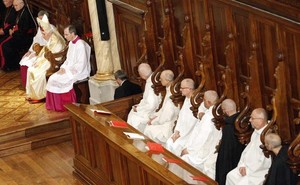 In speaking at a Charterhouse on October 9, Pope
In speaking at a Charterhouse on October 9, Pope
Benedict contrasted modern life and the monastic life saying that society
“throws light on the specific charism of the Carthusian monastery as a
precious gift for the Church and for the world, a gift which contains a
profound message for our lives and for all humanity. I would summarise it in
these terms: by withdrawing in silence and solitude man, so to speak, ‘exposes’
himself to the truth of his nakedness, he exposes himself to that apparent
‘void’ I mentioned earlier. But in doing so he experiences fullness, the
presence of God, of the most real Reality that exists. … Monks, by leaving
everything, … expose themselves to solitude and silence so as to live only
from what is essential; and precisely in living from the essential they
discover a profound communion with their brothers and sisters, with all
mankind”.
journey, a lifelong search. … Becoming a monk requires time, exercise,
patience. … The beauty of each vocation in the Church lies in giving time to
God to work with His Spirit, and in giving time to one’s own humanity to form,
to grow in a particular state of life according to the measure of maturity in
Christ. In Christ there is everything, fullness. However we need time to
possess one of the dimensions of His mystery. … At times, in the eyes of the
world, it seems impossible that someone should spend his entire life in a
monastery, but in reality a lifetime is hardly sufficient to enter into this
union with God, into the essential and profound Reality which is Jesus
Christ”.
Holy Father told the monks at the end of his homily. “You, who live in
voluntary isolation, are in fact at the heart of the Church; you ensure that
the pure blood of contemplation and of God’s love flows in her veins”.
Saint Louis Bertrand
O God, through mortification of the body and preaching of the faith, you raised the blessed Louis, your confessor, to the glory of the saints; grant that what we profess by faith we may ever fulfill by works of piety.
The preaching one hears from a member of the Order of Preachers ought to lead each person to a deeper relationship with God. Saint Louis Bertrand said, “If because of your preaching men lay aside enmities, forgive injuries, avoid occasions of sin and scandals, and reform their conduct, you may say that the seed has fallen on good ground. But to God alone give all the glory and acknowledge yourselves ever unprofitable servants.”
~Saint Louis Bertrand to the young Dominican students
Let us pray through Saint Louis Bertrand’s intercession for the Church in the Americas and the Islands.
14 countries deny religious freedom, says a US agency
The annual report on religious freedom lists 14 countries which deny religious freedom to their citizens. The United States Commission on International Religious Freedom (www.uscirf.gov) is a bi-partisan US Federal commission, appointed by the US President to advise him and Congress on matters pertaining to the freedom of religion.
